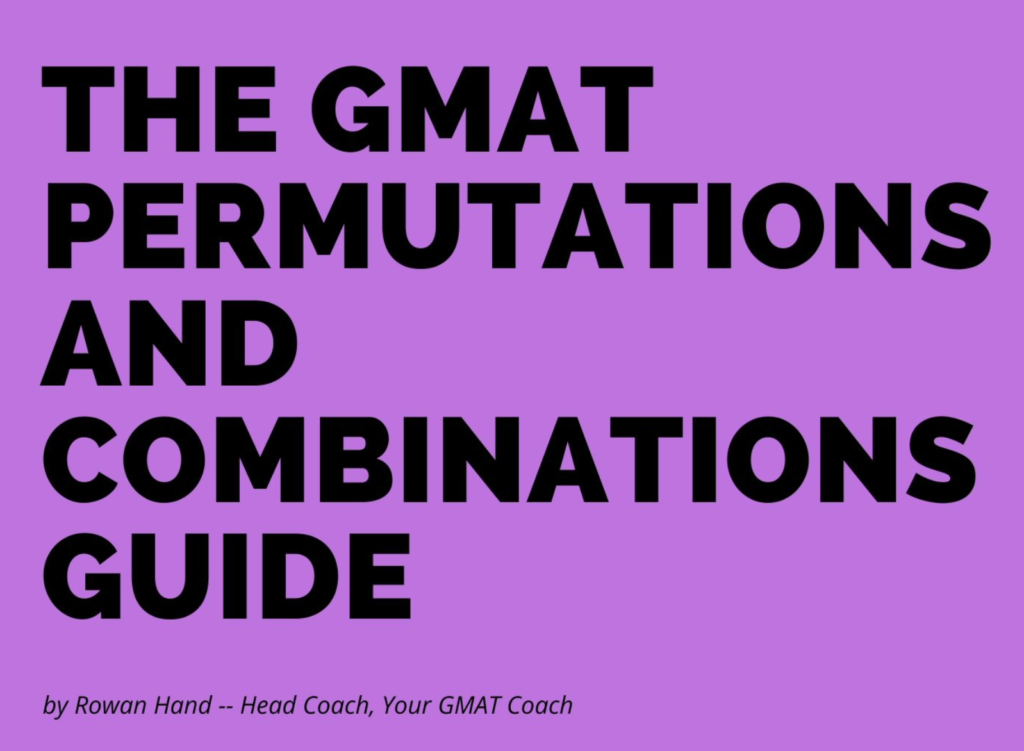Which of the following is equal to (1/6)(48^7)?
A. 8^6
B. 8^7
C. 6(48)^6
D. 8(48)^6
E. 8(48)^7
First, let’s restate the question using actual math symbols rather than the garbage I have to use for SEO (but you’re here, so it obviously worked…).
Which of the following is equal to![]() ?
?
A. ![]()
B. ![]()
C. ![]()
D. ![]()
E. ![]()
General the first place you’ll want to go in a question like this will be to rephrase all of the numbers as primes.
That would look something like this:
![]()
Now expand the brackets out, multiplying the powers in the brackets by the 7 on the outside of the brackets. Also keep in mind that the prime factorization of 48, as noted in the workings above, is ![]() .
.
That is…
![]()
Now combine the fraction with the numbers in the brackets:
![]()
At this point, it’s worth looking again at the answers. Notice how all of them have a number of instances of ![]() . That is, we need to figure out how many instances of 48 we can squeeze out of the given statement
. That is, we need to figure out how many instances of 48 we can squeeze out of the given statement ![]() .
.
To do so, start with the number that’s represented fewer times (which is likely more limiting). We only have 6 instances of 3, so the maximum number of times we could have 48 is of course 6 based on this limitation. Note that this eliminates (E) as an answer.
Now if we were to imagine 6 instances of 48, we would have this: ![]() .
.
This number does fit into our larger number ![]() . In fact, rephrasing this number by separating out the
. In fact, rephrasing this number by separating out the ![]() term, we have this:
term, we have this: ![]() . Note that we still have 3-terms in our answer, so (A) and (B) can be eliminated.
. Note that we still have 3-terms in our answer, so (A) and (B) can be eliminated.
Now all that’s left is simply to expand the number into terms that match the answer choices. Note that the ![]() that we factored out is simply 8, while we have
that we factored out is simply 8, while we have ![]() for the 48-terms.
for the 48-terms.
Therefore, we find: ![]()
The answer is (D).
Want to get in touch to discuss improving your GMAT/GRE score?
Free 20-minute consultation:
Which of the following is equal to — one more time for SEO!

This picture is irrelevant but you oughtta see its alt text!






